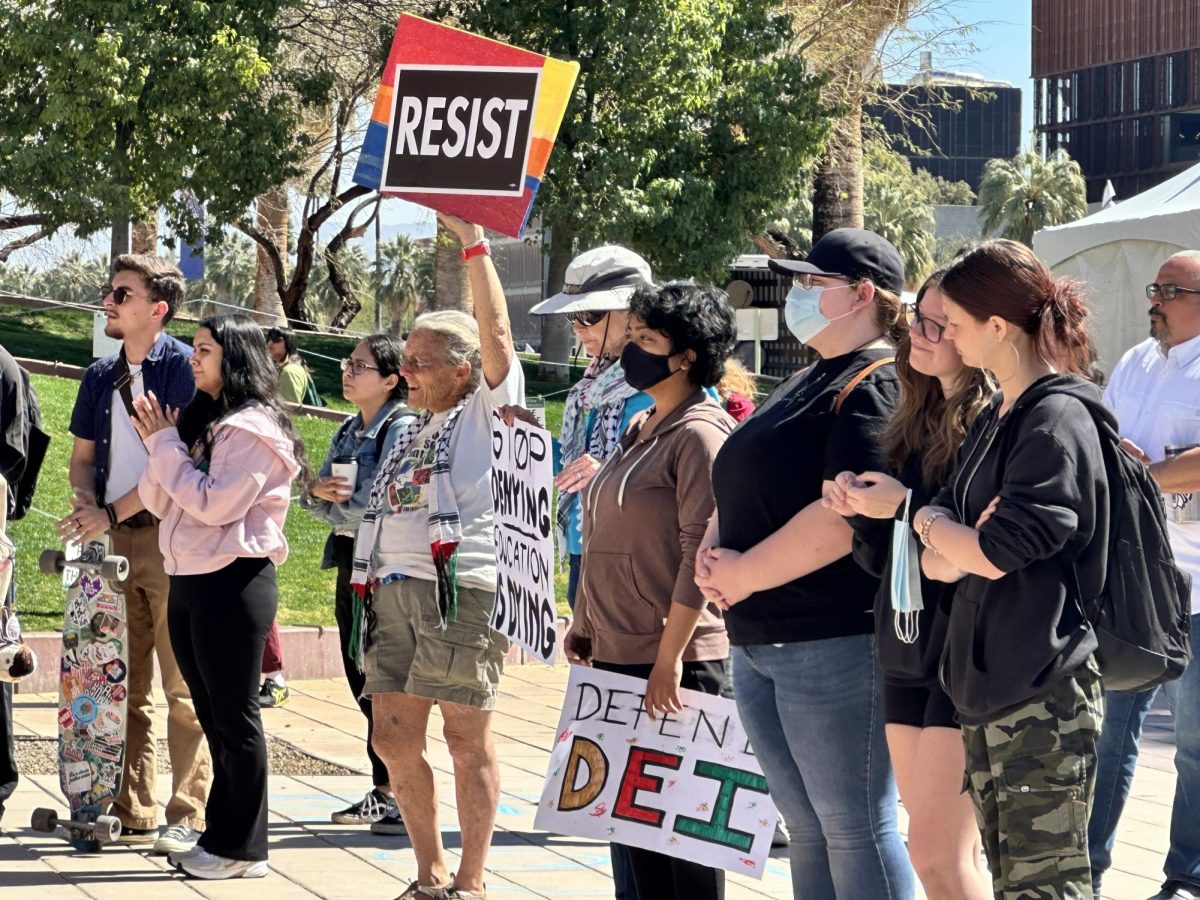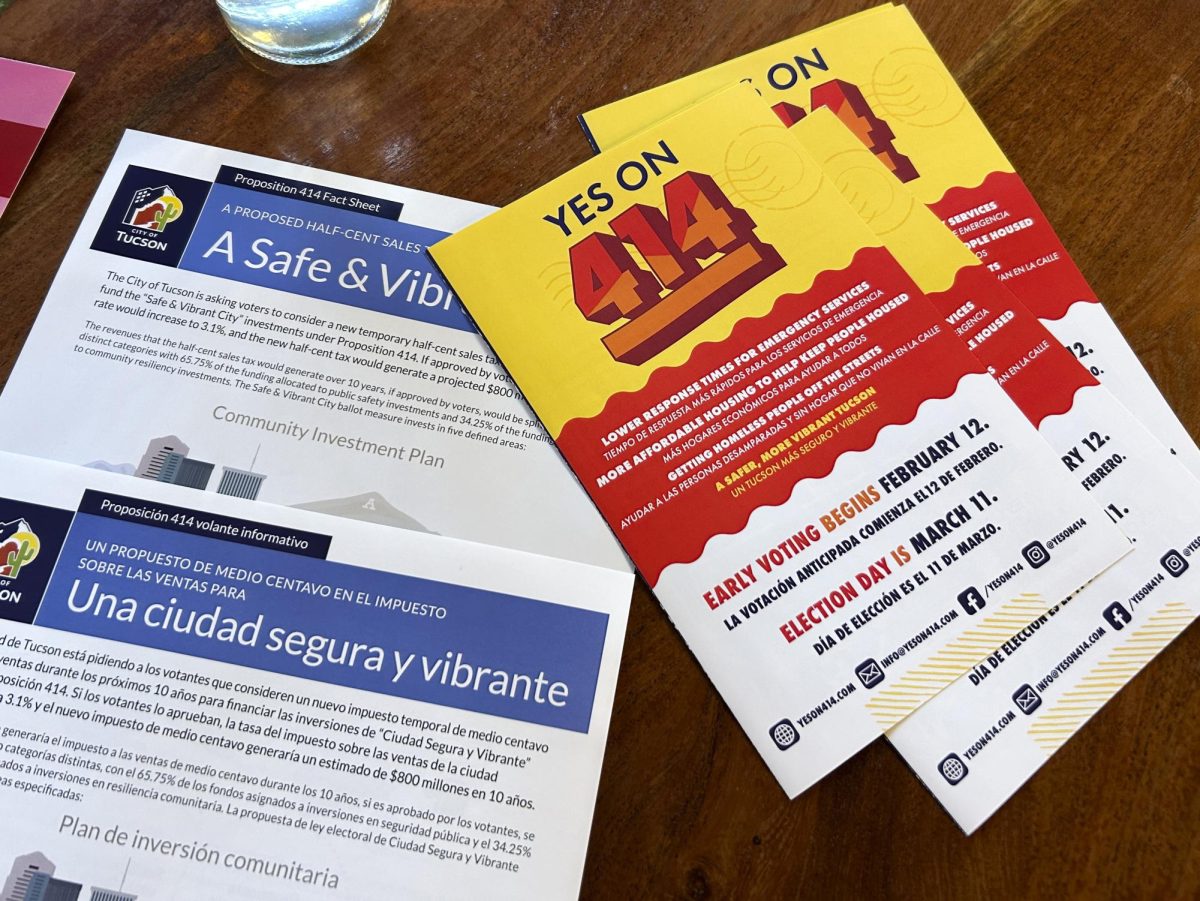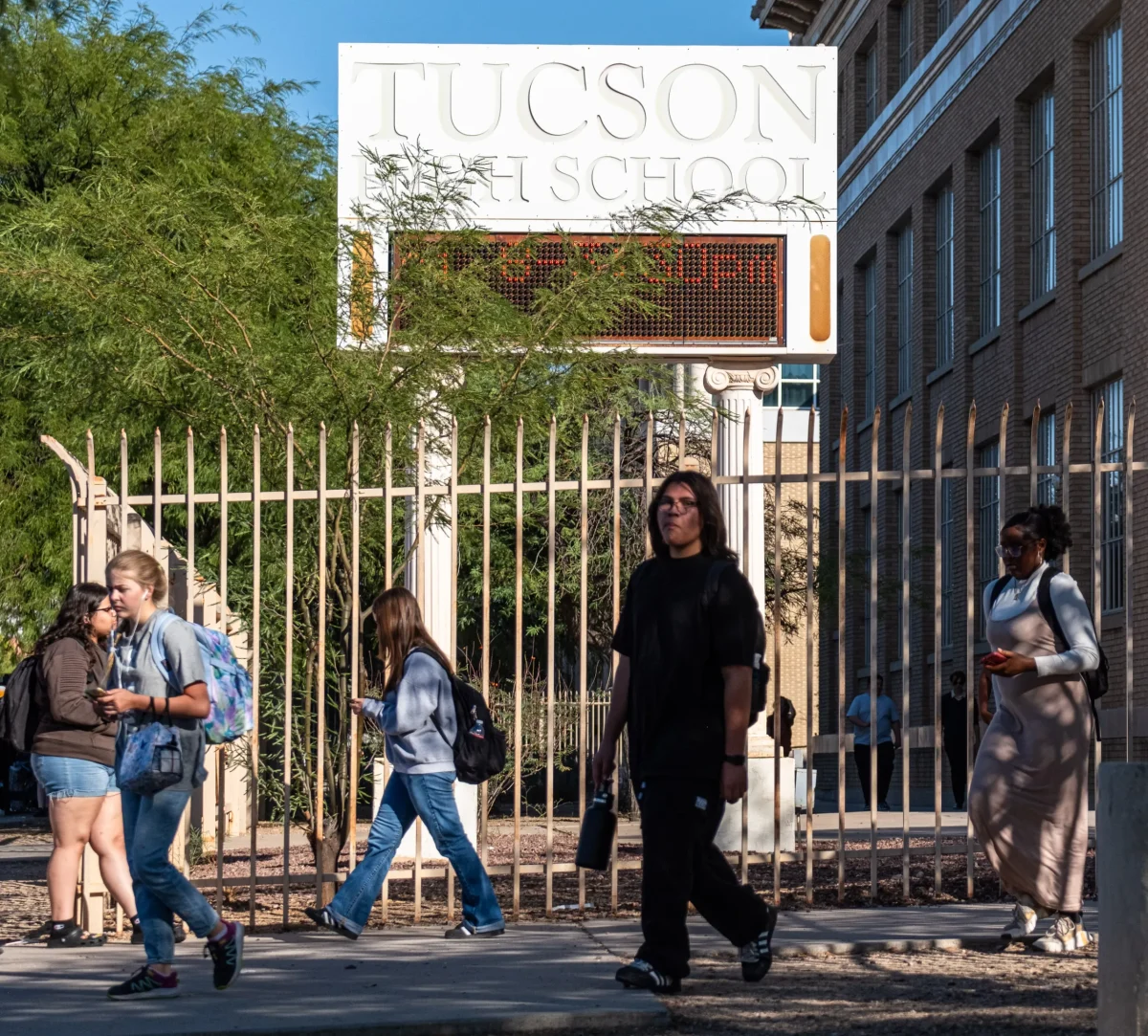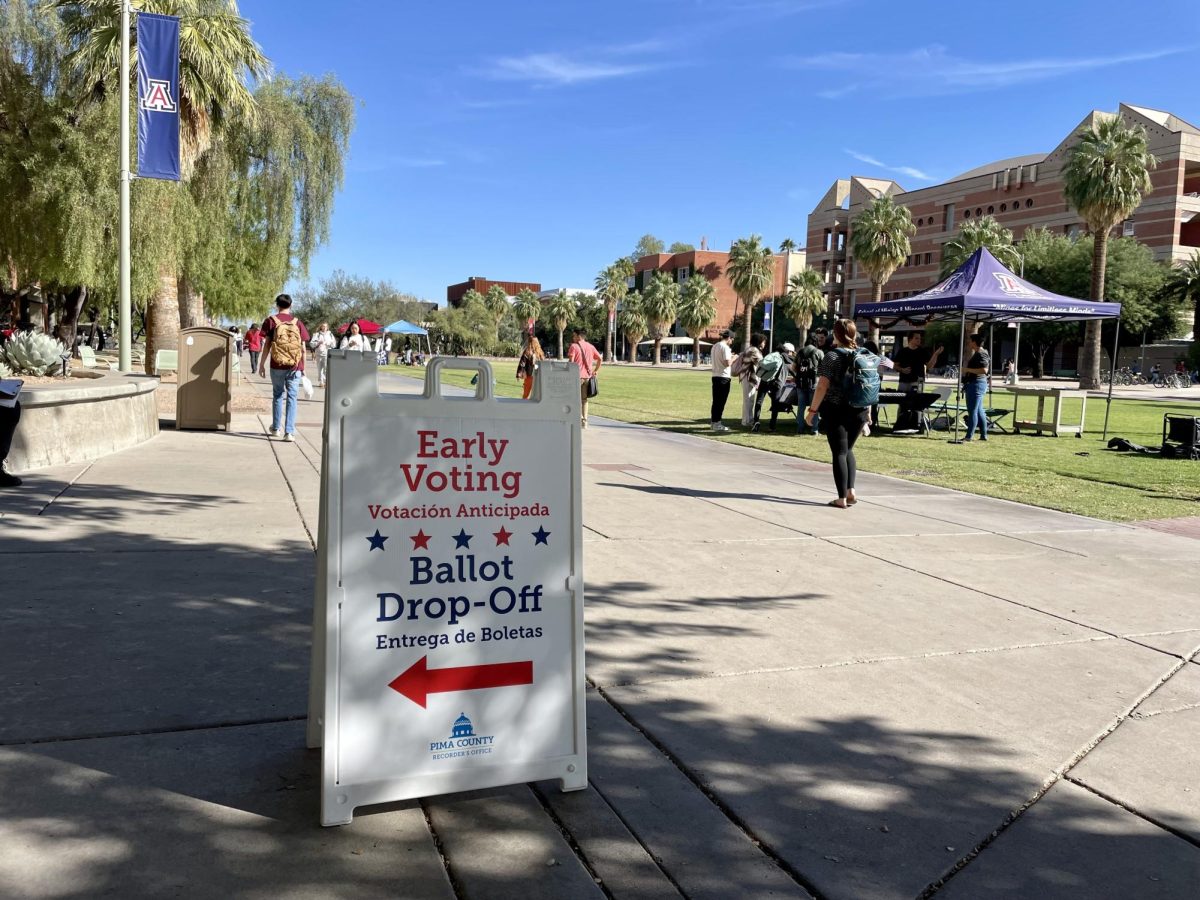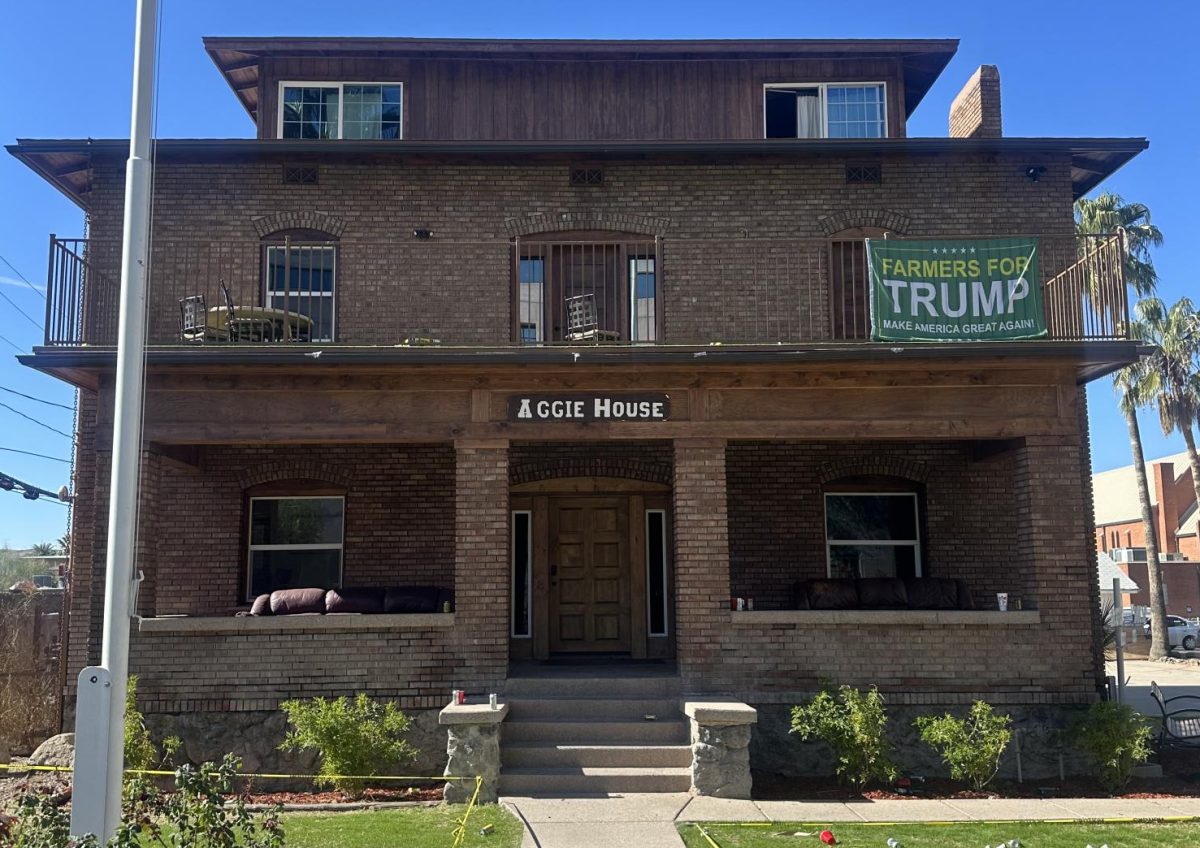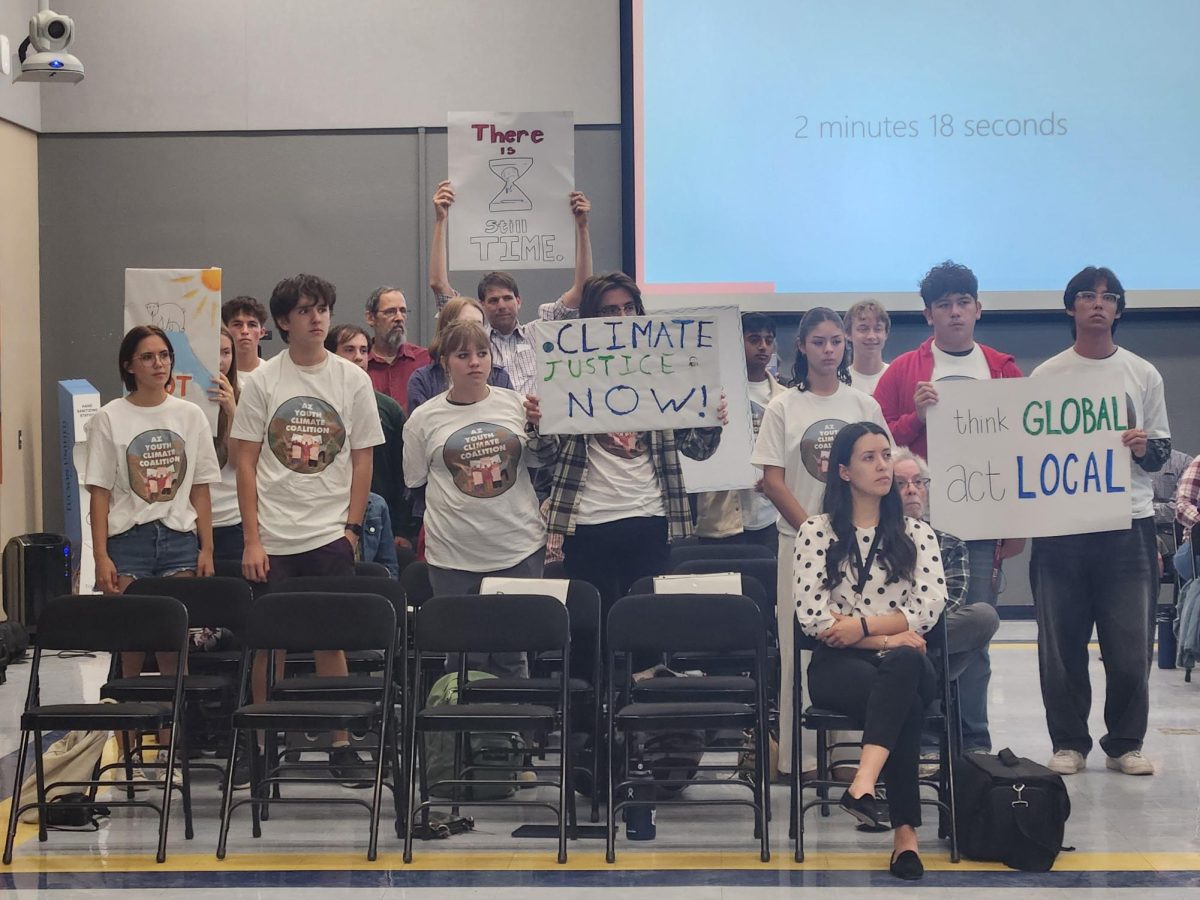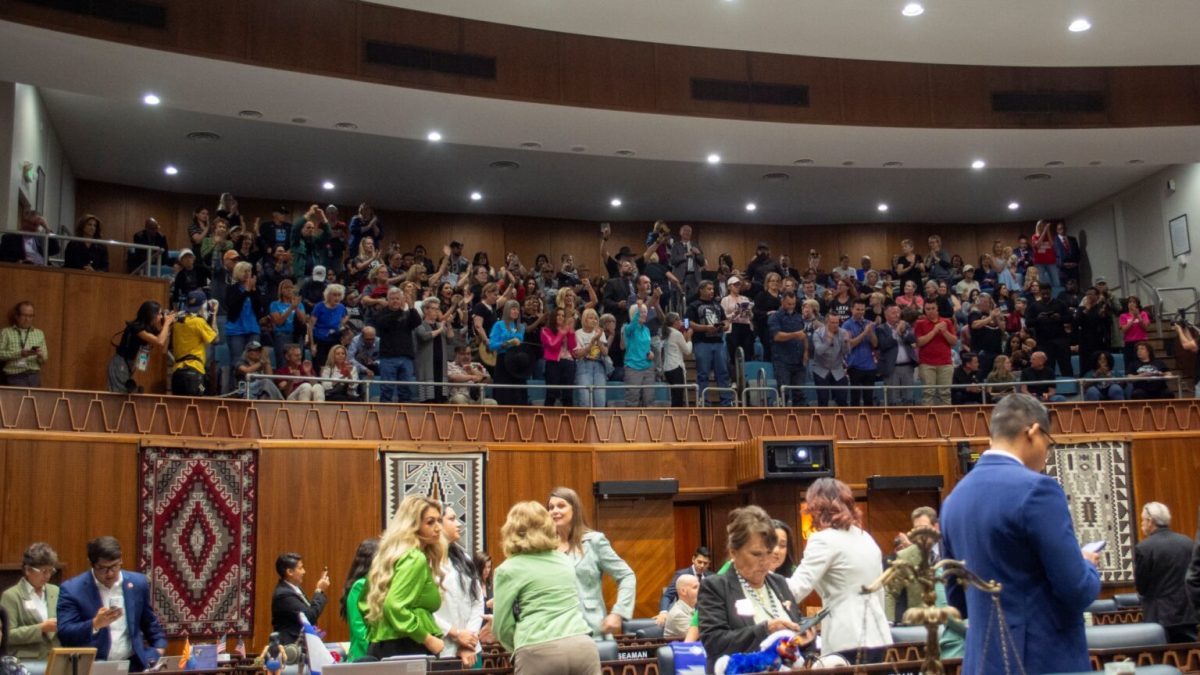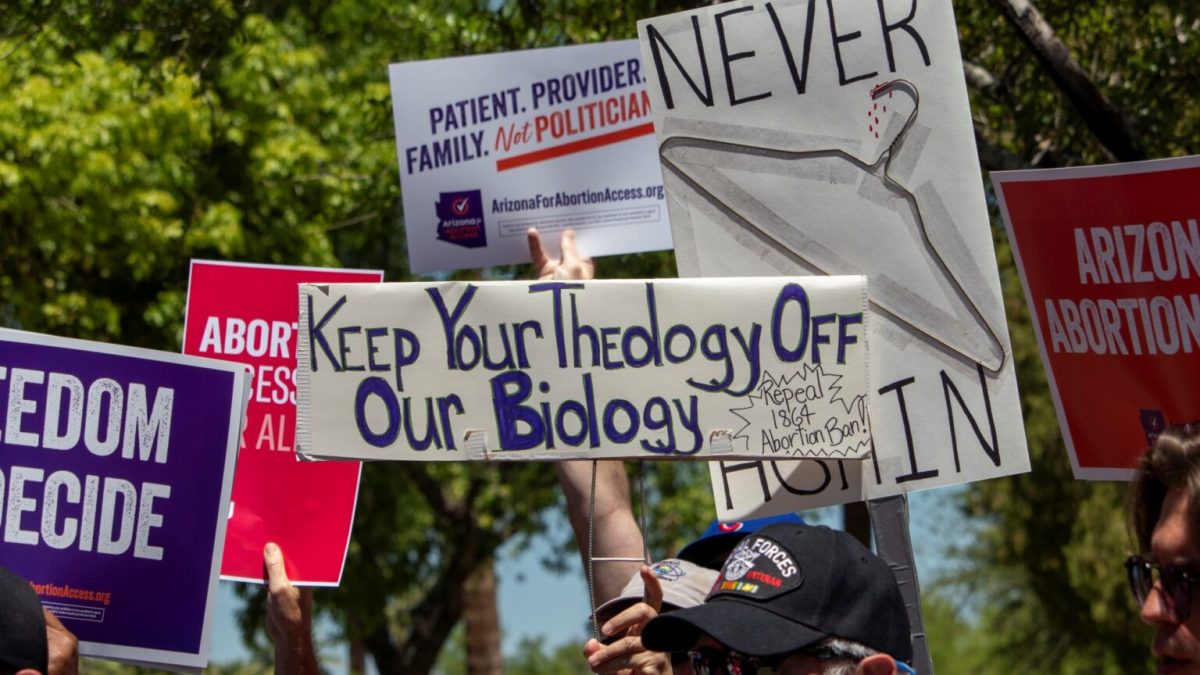A bill to make it a felony for protesters to block roadways with their demonstrations is waiting for Gov. Katie Hobbs to decide its fate.
The proposal would make it a class 6 felony for a pedestrian to interfere with traffic on any bridge, tunnel or highway with more than 25 people or cars on it, or any roadway that leads to an airport if they don’t have legal permission to do so and have already been given a warning.
“Before this class 6 felony occurs, in addition to it having to be a large blockage of many cars, the police have to tell the person ‘you’ve gotta move’ and only then, if they say no…does it rise to the felony level,” Sen. John Kavanagh, R-Fountain Hills and the bill’s sponsor, told the House Judiciary Committee last month.
Currently, state law classifies obstructing a highway as a class 2 misdemeanor, which can include a sentence of up to four months and fines totaling $750. A class 6 felony carries a presumptive sentence of one year in jail.
The bill, Senate Bill 1073, passed the House of Representatives on a 36-19 vote on March 26.
Kavanagh conceded that state law already makes it a crime for protesters to block traffic, but said the penalties should be stiffer if busier roads are obstructed.
“All I’m doing now is saying … greater harm requires a greater penalty. If you’re going to obstruct a lot of people, even after you’re told you gotta move, then you just walked into a felony,” he said. “I think a lot of them, when told that, will get up and we can restore traffic”
The bill is Kavanaugh’s third revision to state law pertaining to blocking traffic. It was also amended in 2016 after a rally hosted by former President Donald Trump was postponed due to protesters blocking a roadway leading to the rally venue.
In committee, Hugo Polanco of the American Civil Liberties Union, told lawmakers that SB1073, and its “overly broad” language, would effectively chill protected First Amendment speech.
“Arizona law already prohibits the activity the sponsor claims he wants to outlaw,” he said “Under SB1073, the officers initial verbal warning to desist does not have to be lawful. The statute gives police wide latitude to order people out of public areas without adequate provocation.”
Katie Gipson McLean, a public defender in Maricopa County, also noted to lawmakers that the practicality, or lack thereof, of SB1073 would make it nearly impossible to apply in court.
“I would have a field day and would love a trial where…prosecutors and officers look like fools for trying to show that there were 25 or more people present. That’s not getting recorded anywhere,” she said. “We’re going down a rabbit hole that I’m pretty sure prosecutors aren’t even interested in going down. You have to prove every element beyond a reasonable doubt, and that’s going to be very hard with the way that this is written.”
Rep. Alexander Kolodin, R-Scottsdale, dismissed arguments that the bill is vaguely written and said he believes that it appropriately addresses situations similar to recent events.
“‘Intentionally interferes with passage on any roadway,’ that’s about as narrow as you can draw the line. What folks like the ACLU would actually like to do is…have the right to shut down conservative political speech,” he said. “I actually view this as a very rare criminal justice bill… tailored towards protecting the First Amendment.”
The measure was not received as well by Democrats. While the rest of the committee voted in favor of the bill, Democrats on the panel seemed reluctant to give law enforcement more power to criminally prosecute Arizonans for trying to exercise their first amendment rights.
Rep. Melody Hernandez, D-Tempe, said that she has heard from a number of protesters that say they have experienced unlawful harm at the hands of the police department.
“I have a lot of concerns with this bill not because of the bill itself, but because of my lack of faith in our police department to properly implement the laws that we create.”
Rep. Analise Ortiz, D-Phoenix, said that she hopes the bill is vetoed, and its implications should “terrify” people across the political spectrum.
“I’m, frankly, tired of politicians and people on the right who get mad at us when we kneel, get mad at us when we boycott, get mad at us when we use our freedom of speech to stand up against things that are wrong,” she said. “So, yes, perhaps people have taken drastic measures, but that’s what happens when the government doesn’t listen to you.”
Ortiz said that, as someone who has been to protests that have been broken up by police, she knows first hand that the police often do not care about giving people enough time to respond to the warning before taking further action, making the mandatory warning stipulated in SB1073 less effective than one would assume.
“I have heard them say, ‘We are going to disperse tear gas, so you better get out of here,’ and then, without giving people, including women and children and people with disabilities, anytime to get away, they disperse the tear gas seconds afterwards,” she said. “That is how our police behave.”
She said that this bill would give law enforcement even more power to come after citizens for expressing their dissenting views regarding current events and the government.
This was the case in October 2020, when 18 people protesting police brutality were arrested and chargedas members of a fictitious “ACAB” street gang. The charges have since been dropped after it was found that Phoenix Police did not have enough credible evidence to back up the claims.
“They took our laws and they used them to falsely charge more than a dozen political protesters as gang members,” Ortiz said. “Ultimately, those charges were dismissed by the Republican county attorney when they realized what an absolute abhorrent civil rights violation (it was), and it wasn’t that they didn’t know it was happening, it was that the public found out.”
SB1073 passed through both the House and Senate with mostly Republican support, and now awaits action from Hobbs.
This story first appeared in AZ Mirror.



